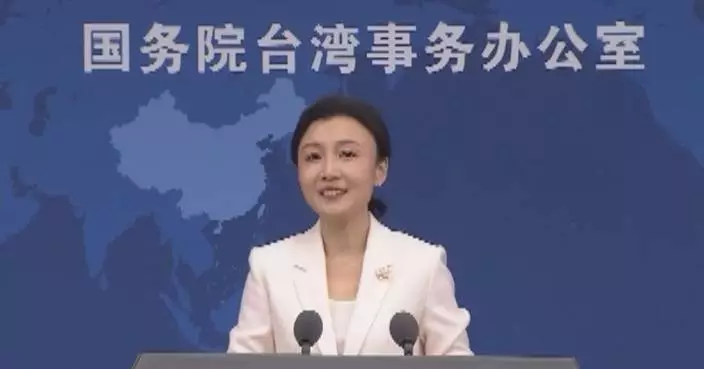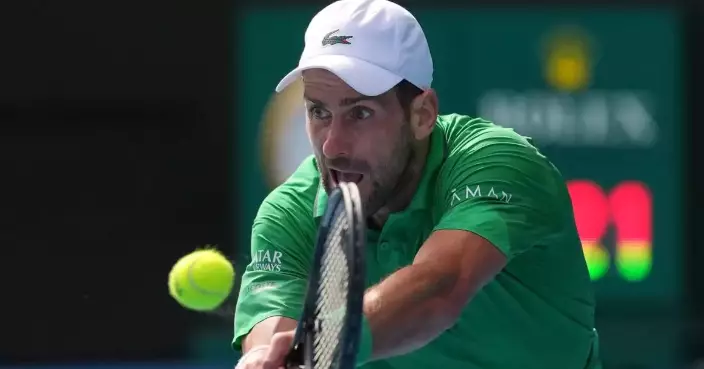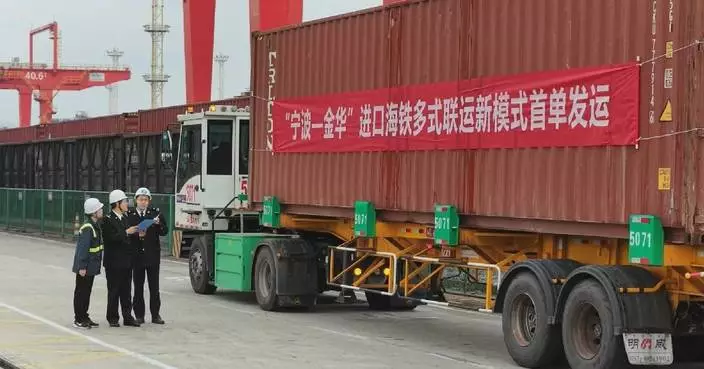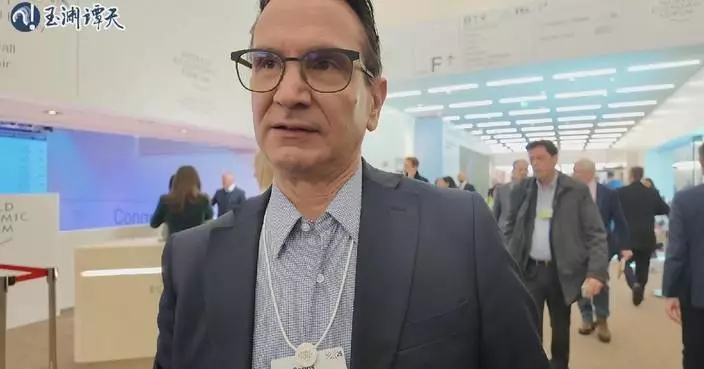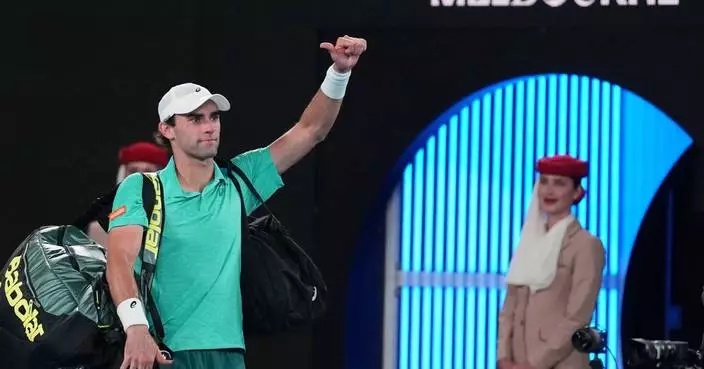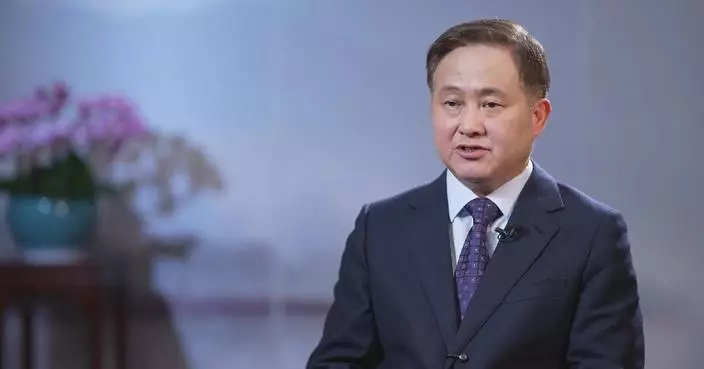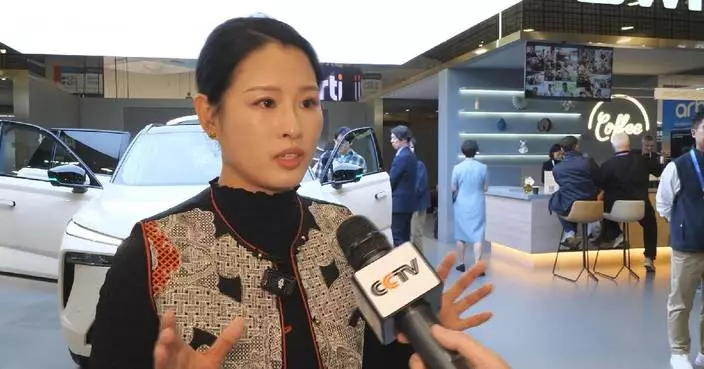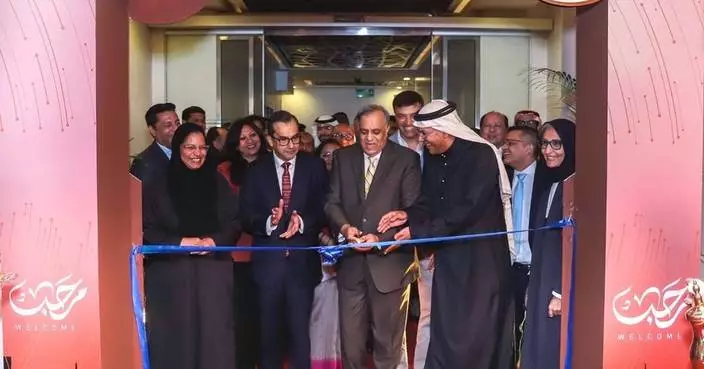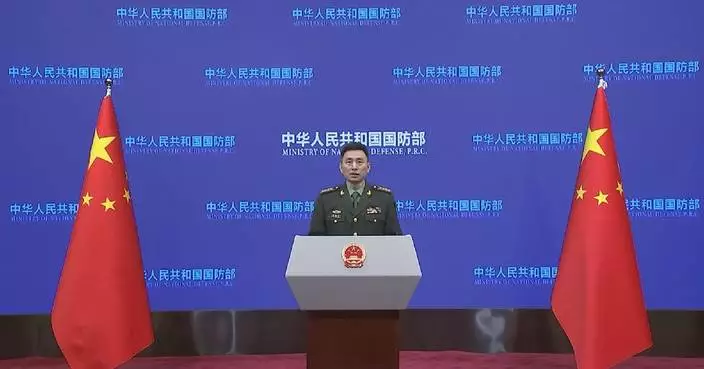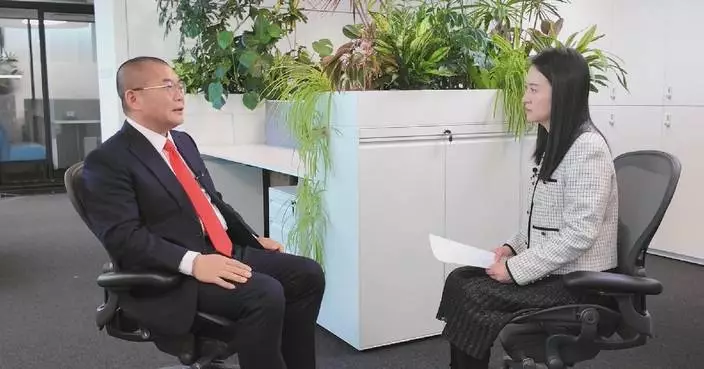Feature · News
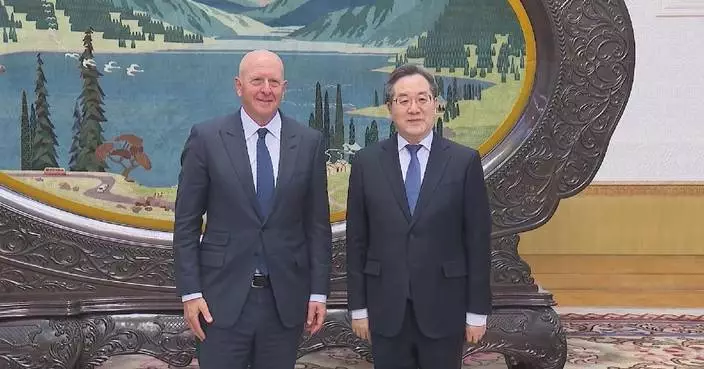
Chinese vice premier meets Goldman Sachs CEO

China's inbound travel surges as visa‑free policies attract global visitors
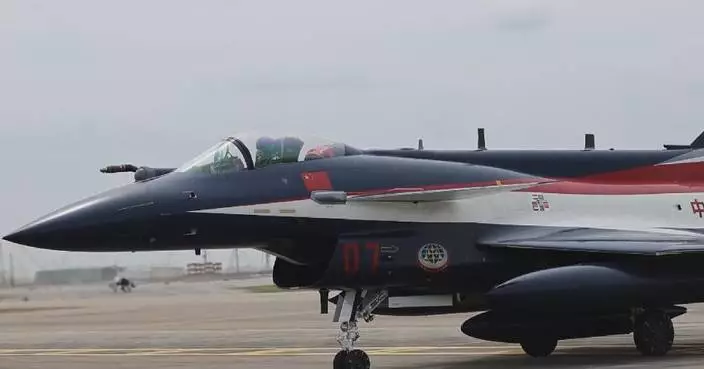
Chinese PLA aerobatic team's J-10 jets arrive in Singapore for airshow

HKUMed Leads in Synergising Global Clinical Trials Data: Reviewing Cardiovascular Drug Safety and Novel Clinical Applications
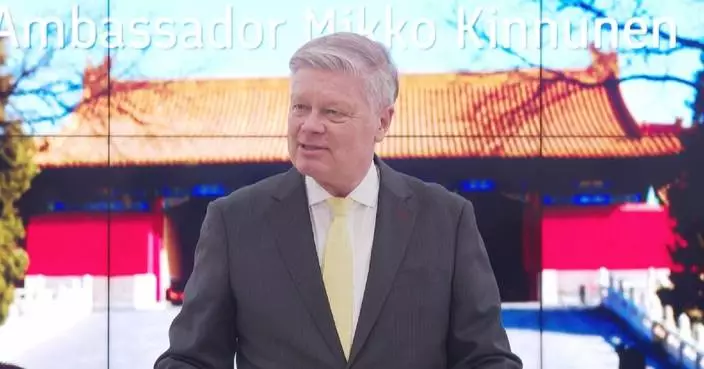
Finnish ambassador on outcomes of Finnish PM's China visit
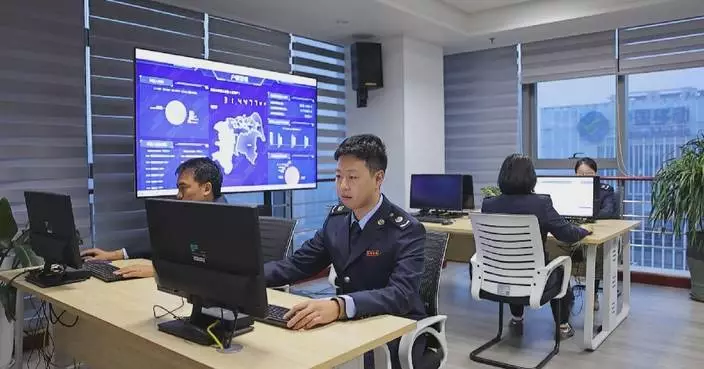
China's total tax revenue exceeds 156 trillion yuan during 2021-25 period
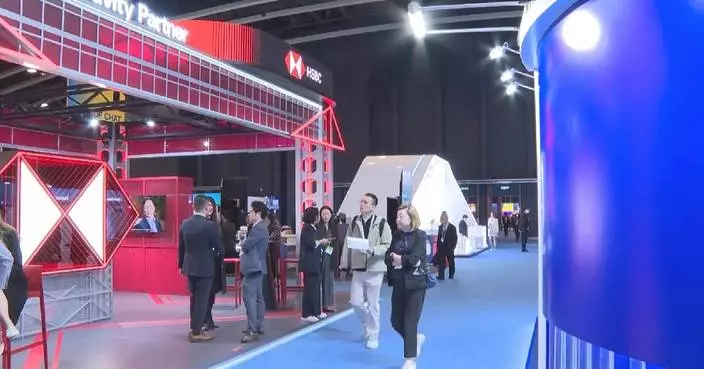
Hong Kong sees record surge in global investment, company presence
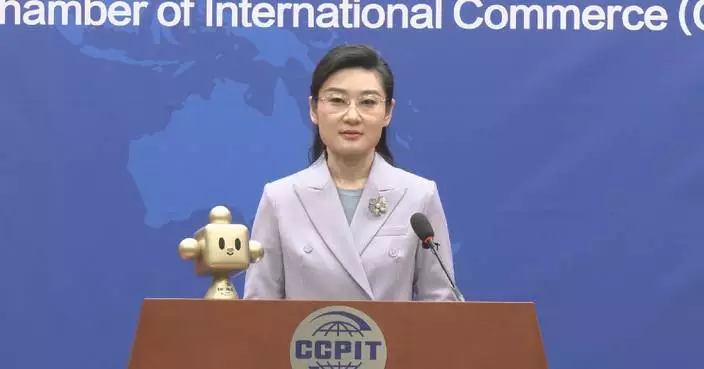
China's Global Trade Friction Index remains high in Nov

As Finland boosts clean power, China plays major role in energy storage

King Charles III's documentary sets out his philosophy for saving the planet

Russia and Ukraine's combined war casualties could reach 2 million soon, report estimates

Mayors warn that Trump's hardline immigration tactics could dent trust in law enforcement

Winter storm across the US in photos
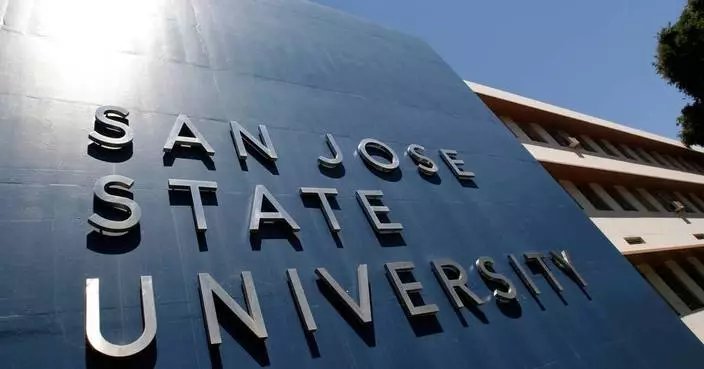
Trump administration says San Jose State broke the law by allowing a transgender volleyball player

Gerber recalls arrowroot biscuits that might contain pieces of plastic or paper

IRS faces stiff challenges in 2026 tax season due to workforce cuts and new laws, a watchdog says
Hong Kong sees record surge in global investment, company presence
China's Global Trade Friction Index remains high in Nov
As Finland boosts clean power, China plays major role in energy storage

King Charles III's documentary sets out his philosophy for saving the planet
Chinese vice premier meets Goldman Sachs CEO
China's inbound travel surges as visa‑free policies attract global visitors
Chinese PLA aerobatic team's J-10 jets arrive in Singapore for airshow

HKUMed Leads in Synergising Global Clinical Trials Data: Reviewing Cardiovascular Drug Safety and Novel Clinical Applications
Finnish ambassador on outcomes of Finnish PM's China visit
China's total tax revenue exceeds 156 trillion yuan during 2021-25 period

Russia and Ukraine's combined war casualties could reach 2 million soon, report estimates

Mayors warn that Trump's hardline immigration tactics could dent trust in law enforcement

Winter storm across the US in photos

Trump administration says San Jose State broke the law by allowing a transgender volleyball player

Gerber recalls arrowroot biscuits that might contain pieces of plastic or paper

IRS faces stiff challenges in 2026 tax season due to workforce cuts and new laws, a watchdog says
Feature·Bloggers

【Law ABC】The Jimmy Lai Chronicle : What the Court was Told (7) - Follow the Money: How Jimmy Lai Funneled HK$100 Million to Hong Kong's Opposition Machine

【Deep Throat】Britain Calls Trump's Bluff: Starmer Takes 60 CEOs to Beijing

【Bastille Commentary】Britain’s Asylum Buffoonery: Even WSJ Can’t Look Away
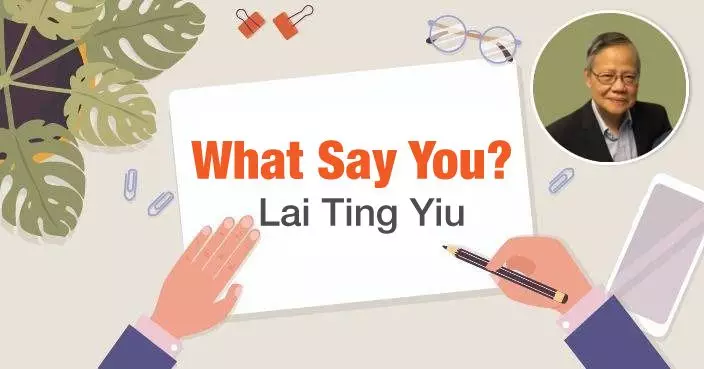
【What Say You?】Four Anti-China Factions Crushed in Embassy Battle—But They're Not Done Yet

【Bastille Commentary】The Real "Kangaroo Court": Where Power Buys Freedom

【Deep Throat】Canada Ditches Trump's Playbook, Slashes EV Tariffs

Senegal and Morocco fined and players banned after African Cup final walk-off and chaos
- Roland and Musical Futures International Bring Hands-On Electronic Music Education to Classrooms with the Roland ASPIRE Project
- Asian shares trade mixed and gold jumps more than 4% after the Fed keeps rates unchanged
- EU appears poised to sanction Iran's Revolutionary Guard over protest crackdown
- Robbyant Open-Sources LingBot-World, a World Model for Millisecond-Level Real-Time Interaction
- US appeals court says Noem's decision to end protections for Venezuelans in US was illegal
- Car rams into Chabad headquarters in New York City, damaging doors
- Vietnam and the EU upgrade ties as US tariffs reshape global trade
- Situation in US South grows more dire after days of ice, frigid temperatures and widespread outages
- Democrats poised to trigger government shutdown if White House won't meet demands for ICE reform
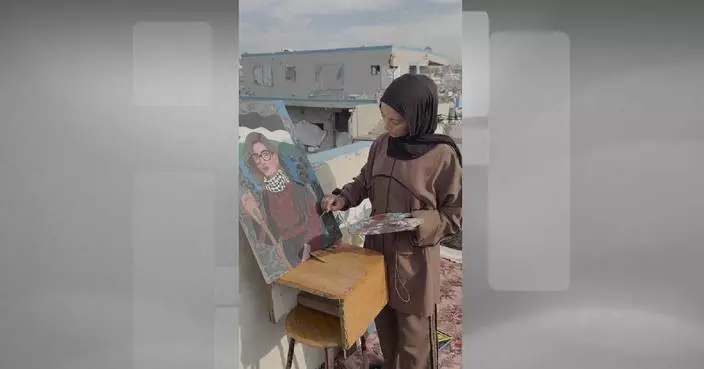
Teen artist in Gaza draws to inspire hope, share voices worldwide
- Chinese shares close mixed Thursday
- DPP politicians' remarks expose servile, traitorous nature: spokeswoman
- China donates insulin syringes to Palestinian refugees in Jordan
- China supports Iran in maintaining stability, opposes use of force: Chinese envoy
- Caracas residents struggle to rebuild life amid lingering trauma from US strikes
- Foreign companies bullish on Chinese market
- Chinese FM holds talks with Azerbaijani counterpart
- China sees sustained improvement in ecological conditions in key regions
- Gold price tops 5,500 US dollars in historic rally
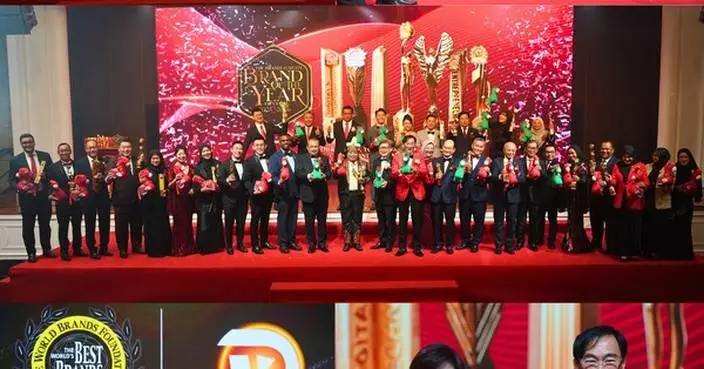
The BrandLaureate Celebrates Brand of The Year Award 2025-2026, Stepping into 2026 with Pride & Purpose
- From Pitch to Home: Haier's Global Champion Tour Hits Bangkok, Showcasing Localized Premium Appliances and Healthy Living
- Agoda Launches Agoda Impact Lab at ASEAN Tourism Forum
- Innovative and Immersive, ISLE 2026 to Define the Future of Display and Integration
- Singapore hosts its first Global Health Film Festival, spotlighting pandemic and planetary health
- The Top Employers in Asia-Pacific Have Been Announced for 2026
- Ubitus Partners with Maizuru City, Kyoto to Launch AI Data Center Project, Advancing the Deployment of a Top-Tier AI GPU Center in Japan
- Ishikawa Named One of BBC Travel's "20 Best Places to Travel in 2026"
- Blokees Exhibits Multiple Products at Spielwarenmesse 2026
- Pepperstone Dominates Global Forex Awards: Four Major Wins Kick Off 2026

One Tech Tip: Fed up with AI slop? A few platforms will let you dial it down
- US life expectancy hit an all-time high in 2024, CDC says
- Tesla made smallest annual profit since the pandemic, plans to spend big on robotaxis and robots
- Microsoft beats Wall Street expectations with $81.3B revenue
- Meta posts stronger-than-expected Q4 results though costs continue to soar
- Medicare proposes new transplant system rules that might spur use of less-than-perfect organs
- Eating snow cones or snow cream can be a winter delight, if done safely
- Being a night owl may not be great for your heart but you can do something about it
- ASML made record $11.5 billion profit in 2025 thanks to AI-driven demand, plans to cut 1,700 jobs
- TikTok settles as social media giants face landmark trial over youth addiction claims

Kendrick Lamar, Lady Gaga, K-pop and more: AP predicts who will win at the 2026 Grammys
- Valentino opens post-Garavani couture with somber note, then high drama
- Bruce Springsteen sings out against Trump in 'Streets of Minneapolis'
- Four big questions ahead of the 2026 Grammy Awards show
- Haute couture highlights from Paris, in photos
- A historic house in Serbia's capital hangs on with intimate theatrical productions
- Chanel couture gets a breath of fresh air and stars. Armani revamps
- Neil Young's gift to Greenland: Free access to his entire music catalog
- Philip Glass cancels Kennedy Center symphony premiere in protest of Trump's leadership
- Ralph Fiennes, star of stage and screen, makes opera debut in Paris directing `Eugene Onegin'

Wembanyama scores 28 points to lead Spurs past Rockets, 111-99
- Julius Randle scores 31 points as Timberwolves beat short-handed Mavericks, 118-105
- Golden State buries Utah 140-124 behind a flurry of 3-pointers
- LeBron James wipes away tears during tribute, says he doesn't know if he'll play in Cleveland again
- Senators hand league-leading Avalanche 3rd loss in 4 games with 5-2 victory
- Paolo Banchero and Anthony Black lead Magic past Heat 133-124 to snap 4-game skid
- Hornets beat Grizzlies 112-97 to top victory total from all of last season
- Bridges scores 30, Towns has 22 rebounds as Knicks beat Raptors 119-92 for 4th straight win
- Alexander-Walker scores 21 points, Hawks beat Celtics 117-106 to avenge blowout loss
- Islanders roll past Rangers 5-2 in Palat’s first game

HKMA and SFC Propose Standard Calculation Periods for OTC Derivatives Regulatory Regime Starting March 2027
- Hong Kong Customs Seizes 1.81 Million Illicit Cigarettes, Arrests One in Yau Tong Operation
- Passenger Sentenced to Seven Months for Smuggling Duty-Not-Paid Cigarettes and Alternative Smoking Products in Hong Kong
- Hong Kong and Beijing Collaborate at Art Toy Intellectual Property Exchange Events
- Health Authority Updates Antibiotic Guidelines to Combat Antimicrobial Resistance and Enhance Public Health
- Hong Kong Customs Seizes $56 Million in Suspected Smuggling Case Involving River Trade Vessel
- Hang Seng Gold ETF Launch Marks New Era for Hong Kong's Gold Market
- Hong Kong Health Bureau Offers Comprehensive Medical Support for Wang Fuk Court Fire Victims
- Hong Kong’s Booming Startup Ecosystem Draws Global Founders
- Professor Sun Promotes Hong Kong's Innovation Potential in Bangkok to Foster Tech Collaboration with Thailand

UNRWA official condemns Israeli demolition of agency’s buildings in East Jerusalem
- Iran rejects talks with U.S. amid military threats
- Chinese yuan weakens to 6.9771 against USD Thursday
- Crude futures settle higher
- U.S. dollar ticks up
- U.S. stocks close mixed as Fed holds interest rate steady
- Escalating tensions with US over Greenland thrusts Europe into dilemma: French experts
- China expects record-high passenger trips during 2026 Spring Festival travel rush
- Heavy rain, mud hamper search efforts after deadly Indonesia landslide
- Cuba holds torch march to remember national hero Jose Marti
Category · News

HKMA and SFC Propose Standard Calculation Periods for OTC Derivatives Regulatory Regime Starting March 2027

Hong Kong Customs Seizes 1.81 Million Illicit Cigarettes, Arrests One in Yau Tong Operation

Senegal and Morocco fined and players banned after African Cup final walk-off and chaos

Passenger Sentenced to Seven Months for Smuggling Duty-Not-Paid Cigarettes and Alternative Smoking Products in Hong Kong
Teen artist in Gaza draws to inspire hope, share voices worldwide

The BrandLaureate Celebrates Brand of The Year Award 2025-2026, Stepping into 2026 with Pride & Purpose
Chinese shares close mixed Thursday
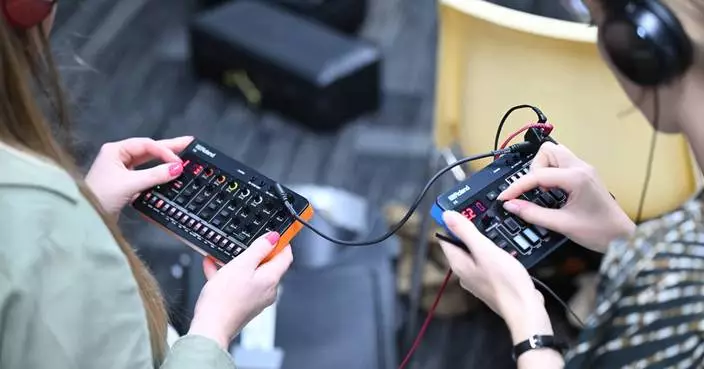
Roland and Musical Futures International Bring Hands-On Electronic Music Education to Classrooms with the Roland ASPIRE Project
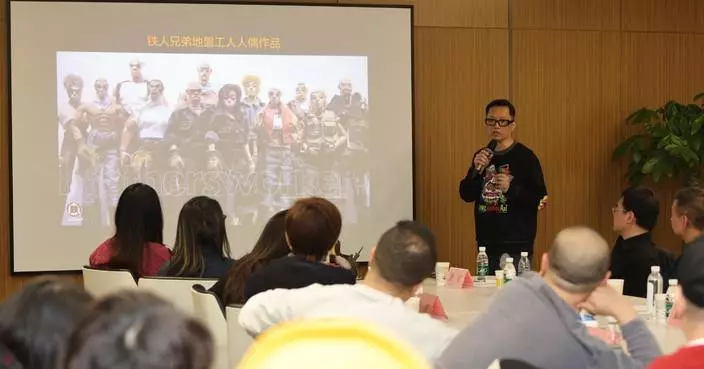
Hong Kong and Beijing Collaborate at Art Toy Intellectual Property Exchange Events

Health Authority Updates Antibiotic Guidelines to Combat Antimicrobial Resistance and Enhance Public Health

Asian shares trade mixed and gold jumps more than 4% after the Fed keeps rates unchanged

EU appears poised to sanction Iran's Revolutionary Guard over protest crackdown

From Pitch to Home: Haier's Global Champion Tour Hits Bangkok, Showcasing Localized Premium Appliances and Healthy Living
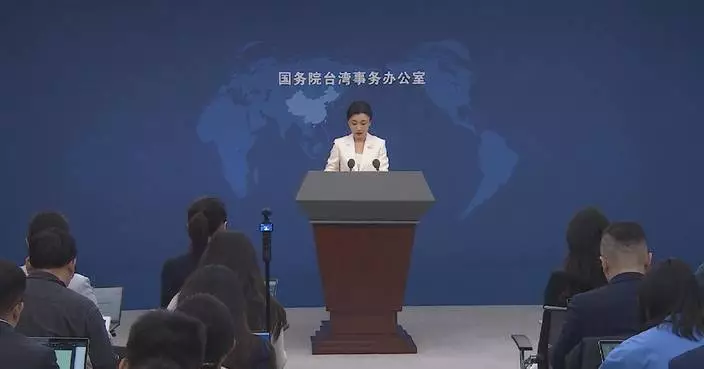
DPP politicians' remarks expose servile, traitorous nature: spokeswoman
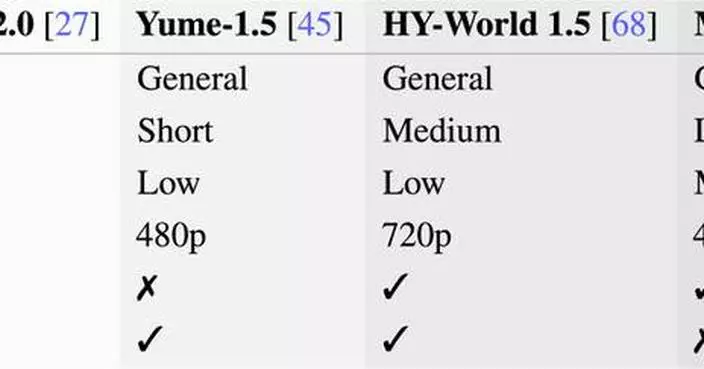
Robbyant Open-Sources LingBot-World, a World Model for Millisecond-Level Real-Time Interaction
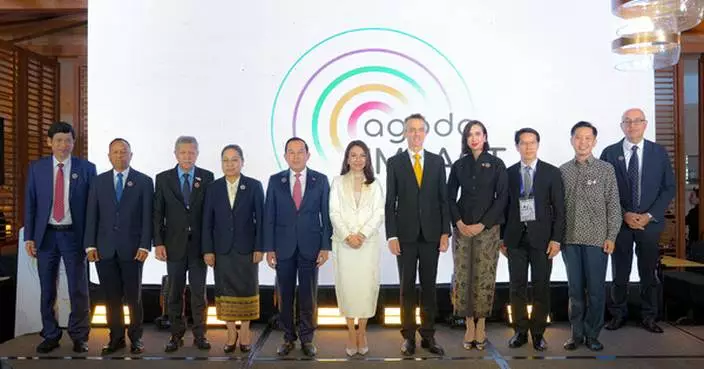
Agoda Launches Agoda Impact Lab at ASEAN Tourism Forum

Innovative and Immersive, ISLE 2026 to Define the Future of Display and Integration
China donates insulin syringes to Palestinian refugees in Jordan
China supports Iran in maintaining stability, opposes use of force: Chinese envoy

Singapore hosts its first Global Health Film Festival, spotlighting pandemic and planetary health
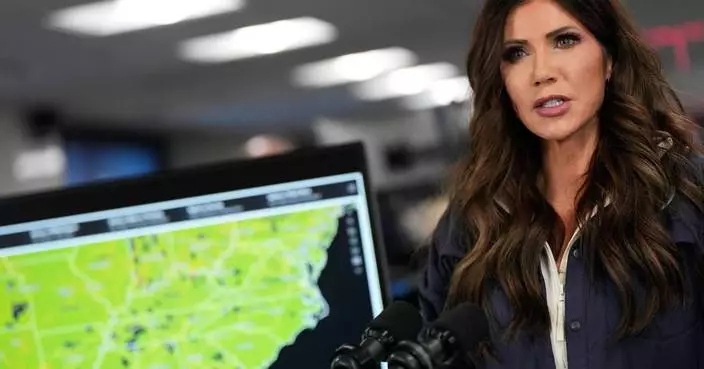
US appeals court says Noem's decision to end protections for Venezuelans in US was illegal

Car rams into Chabad headquarters in New York City, damaging doors

The Top Employers in Asia-Pacific Have Been Announced for 2026
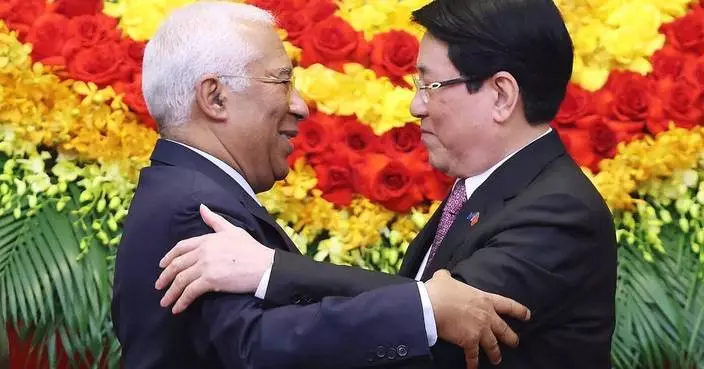
Vietnam and the EU upgrade ties as US tariffs reshape global trade

Situation in US South grows more dire after days of ice, frigid temperatures and widespread outages

Kendrick Lamar, Lady Gaga, K-pop and more: AP predicts who will win at the 2026 Grammys

Ubitus Partners with Maizuru City, Kyoto to Launch AI Data Center Project, Advancing the Deployment of a Top-Tier AI GPU Center in Japan

One Tech Tip: Fed up with AI slop? A few platforms will let you dial it down
Caracas residents struggle to rebuild life amid lingering trauma from US strikes
Foreign companies bullish on Chinese market

Ishikawa Named One of BBC Travel's "20 Best Places to Travel in 2026"

Democrats poised to trigger government shutdown if White House won't meet demands for ICE reform

Blokees Exhibits Multiple Products at Spielwarenmesse 2026

Climate change worsened rains and floods which killed dozens in southern Africa, study shows

Trump signals interest in easing tensions, but Minneapolis sees little change on the streets

Wembanyama scores 28 points to lead Spurs past Rockets, 111-99

Melania Trump's documentary premieres at the Kennedy Center ahead of global release

FEMA could still support winter storm response in a shutdown, despite administration warnings

The former Illinois deputy convicted of killing Sonya Massey faces up to 20 years in prison

US life expectancy hit an all-time high in 2024, CDC says

FBI raid in Georgia highlights Trump's 2020 election obsession and hints at possible future actions

A shadow network in Minneapolis defies ICE and protects immigrants

Hong Kong Customs Seizes $56 Million in Suspected Smuggling Case Involving River Trade Vessel

Julius Randle scores 31 points as Timberwolves beat short-handed Mavericks, 118-105

Golden State buries Utah 140-124 behind a flurry of 3-pointers

LeBron James wipes away tears during tribute, says he doesn't know if he'll play in Cleveland again
Chinese FM holds talks with Azerbaijani counterpart
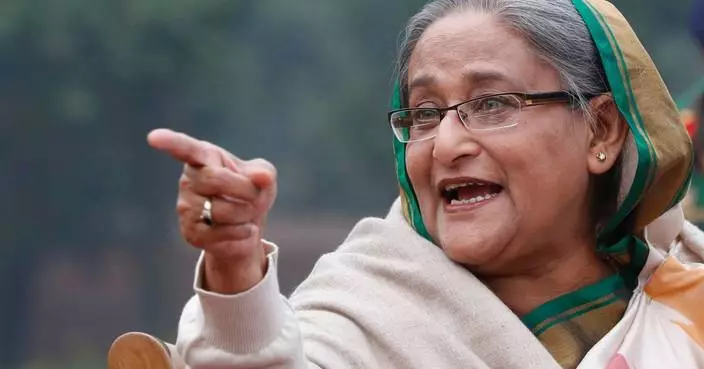
Bangladesh's ousted leader Hasina denounces the upcoming election from her exile in India
China sees sustained improvement in ecological conditions in key regions

Pepperstone Dominates Global Forex Awards: Four Major Wins Kick Off 2026
Gold price tops 5,500 US dollars in historic rally

Senators hand league-leading Avalanche 3rd loss in 4 games with 5-2 victory

Paolo Banchero and Anthony Black lead Magic past Heat 133-124 to snap 4-game skid
UNRWA official condemns Israeli demolition of agency’s buildings in East Jerusalem
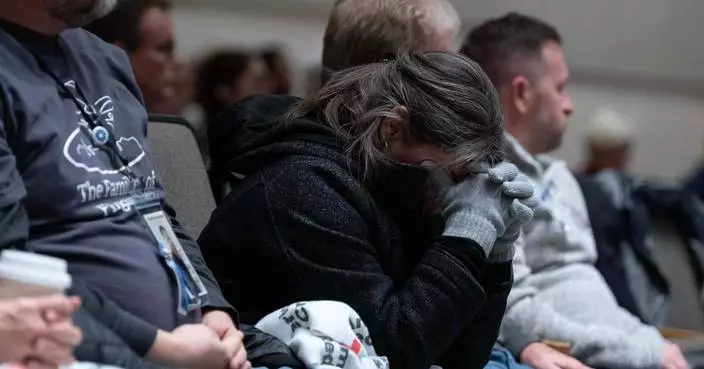
Families of 67 killed in US aircraft crash remember loved ones and call for reforms

Hornets beat Grizzlies 112-97 to top victory total from all of last season
Iran rejects talks with U.S. amid military threats
Chinese yuan weakens to 6.9771 against USD Thursday
Crude futures settle higher

Bridges scores 30, Towns has 22 rebounds as Knicks beat Raptors 119-92 for 4th straight win

Alexander-Walker scores 21 points, Hawks beat Celtics 117-106 to avenge blowout loss

Trump facing growing cultural revolt against immigration crackdown

The top photos of the day by AP's photojournalists
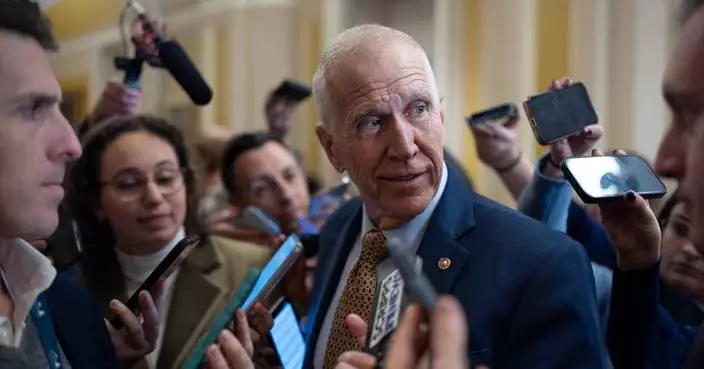
Immigration was a Republican strength. Now some fear it's slipping away before the midterms
U.S. dollar ticks up
U.S. stocks close mixed as Fed holds interest rate steady

Budapest mayor charged for organizing a banned LGBTQ+ Pride event in Hungary's capital

Bybit Leads Global XAUT Spot Trading with ~16% Market Share as Tokenized Gold Rallies to New Highs

New Study: AI Ads Match Human Creative in Major Report from Columbia University, Harvard University, Technical University of Munich, and Carnegie Mellon University; Taboola Data Shows AI Wins by Appearing Authentically Human and Prioritizing Visual Trust Signals
Chinese envoy urges Israel to lift restrictions on humanitarian access in Gaza
Escalating tensions with US over Greenland thrusts Europe into dilemma: French experts

Islanders roll past Rangers 5-2 in Palat’s first game

Aaron Nesmith makes go-ahead layup and game-saving block as Pacers rally past Bulls 113-110
China expects record-high passenger trips during 2026 Spring Festival travel rush

WuXi Biologics and Sinorda Biomedicine Enter Strategic Collaboration to Accelerate Development and Manufacturing of Innovative Bispecific Antibody

Cavaliers spoil LeBron James' return, riding big 3rd quarter to 129-99 romp
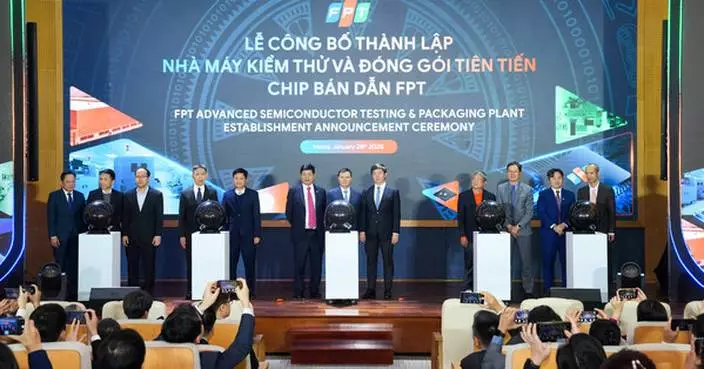
FPT Announces the Establishment of an Advanced Semiconductor Testing & Packaging Plant, Strengthening Vietnam's Position in the Global Value Chain

The Latest: FBI executes search warrant at Fulton County elections office near Atlanta
Xi to meet British PM in Beijing

V Project Unveiled: An Immersive 3D Idol Experience - IDOL, a TOUCH away

Desbiens makes 22 saves, Victoire beat Sceptres 3-0 in final game before Olympic break

Hang Seng Gold ETF Launch Marks New Era for Hong Kong's Gold Market

Democrats visit 5-year-old who was detained in Minneapolis, in a case that stirred anger over ICE

Bupa and Tencent Launch Hong Kong's First Palm-based Check-in Service for Enhanced Healthcare Experiences




